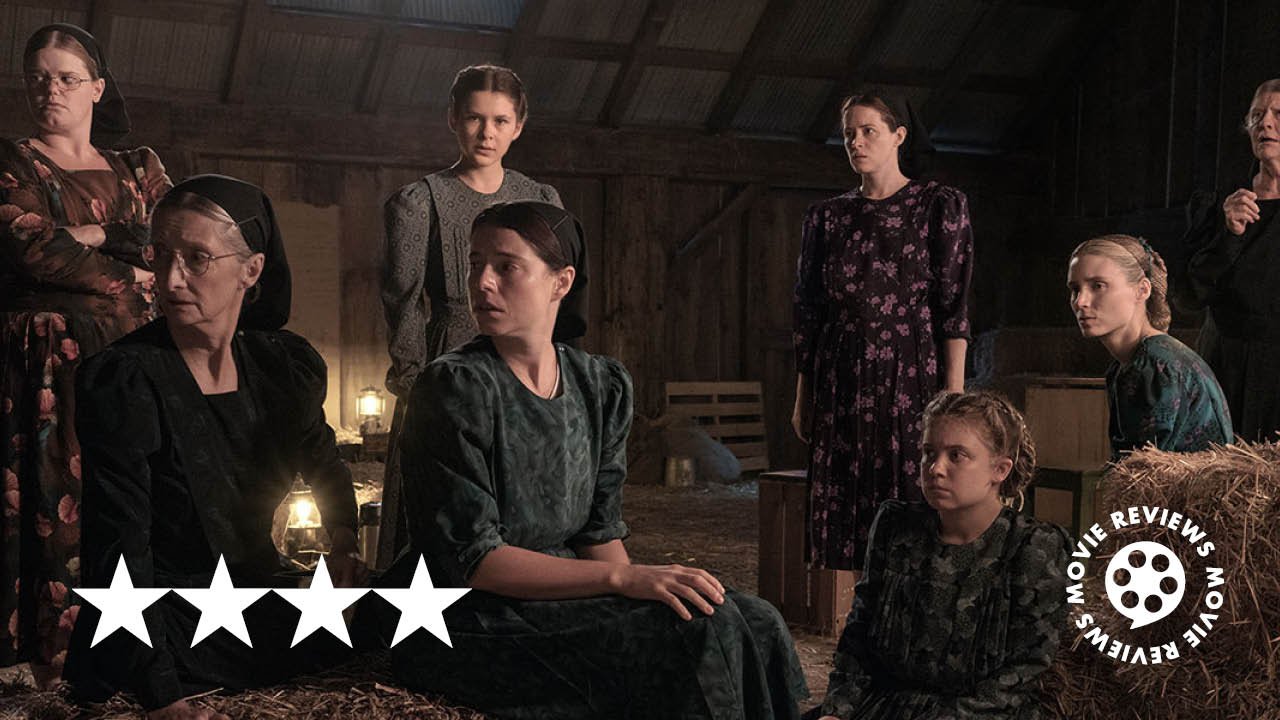Review - Women Talking
Directed by: Sarah Polley
Written by: Sarah Polley
Starring: Claire Foy, Jessie Buckley, Rooney Mara, Michelle McLeod,Kate Hallett, Liv McNeil,Emily Mitchell, Kira Guloein, Shayla Brown, August Winter, Judith Ivey, Sheila McCarthy, Ben Whishaw, Frances McDormand
Running Time: 104 minutes
Rating: 4/5
In 2009, over 150 women and children were repeatedly drugged and raped by a group of men in their isolated Mennonite community in Manitoba Colony, Bolivia. The men, sentenced to prison, left behind a scourge of damage almost unfathomable to process. Each woman and child had been gaslit by their husbands and male elders into thinking the attacks were by God or complete fabrications. But waking up in the morning, with horse tranquillizer still in their veins and blood on their sheets, was no manifestation of the mind or act of the Lord. Miriam Toews's novel Women Talking, and now Sarah Polley's wrenching film adaptation gives voice to those women in that colony, and in an act of "female imagination" — as the film's title card states — explores how these mothers and daughters attempt to move forward after such senseless violence.
An opening voice-over tells us that the women of this community never learned to read or write, but today they're learning how to vote. While the men accused of the crimes are detained in the city, the women decide to either: stay and do nothing, stay and fight, or leave. Once the decision has been narrowed down to stay & fight and leave, a group of selected women gather in a hayloft to discuss their options. What transpires is a 108-minute rumination on faith, freedom, retribution, and forgiveness.
One of its many remarkable attributes is how much equal weight every character gets. It's an actor's showcase through and through, and Polley's script — she stated she wrote several passes of it from different characters' eyes — lets us beautifully track each arc without ever letting us forget the others in the room. Claire Foy's Salome is angry and bound to kill her attacker if she stays; Abused by her own husband, Jessie Buckley's Mariche is consumed by rage; Rooney Mara's Oona, impregnated by her attacker, holds space for others; Prone to cigarettes and moments of panic, Michelle McLeod's Mejal tries to be rational. Liv McNeil and Kate Hallett as Nietje and Autje are intrigued yet bored with the proceedings. And while Judith Ivey's Agata acts as nurturer and lecturer, and Sheila McCarthy's Greta is both protector and storyteller, Frances McDormand's Scarface Janz is sullen and reclusive, refusing to accept anything but staying. Finally, Ben Wishshaw's August Epps has been tasked with quite literally sitting down, taking notes, and listening. While every single actor imbues their respective roles with so much thought and nuance, showcasing the true gamut of emotion inside, it is Buckley, McCarthy, Mara and Whishaw who find subtle ways to break your heart over and over again.
“By stripping away most colour and rejecting modernity, the audience is left to experience this specific world and subsequent horror through these women’s eyes without ease, forcing the viewer to sit with discomfort.”
Polley and cinematographer Luc Montpellier have chosen an incredibly bleak and brutalist aesthetic for the film's look and feel. It's cold and detached, keeping the audience somewhat distant. Polley has referenced Canadian photographer Larry Towell's work as inspiration for the film, and with a quick dive into his portfolio, you can see the artist's influence on screen and, ultimately, how powerful it is for the mind's eye. By stripping away most colour and rejecting modernity, the audience is left to experience this specific world and subsequent horror through these women's eyes without ease, forcing the viewer to sit with discomfort. But this does not mean there isn't beauty to be found; look no further than a rooftop scene between Mara and Whishaw, where the stars flutter above, and the Heavens open up with divinity.
Polley's film is a painful yet necessary experience; to witness these women process their grief, seek out the truth in each other, and ultimately find liberation is nothing short of breathtaking and, quite frankly, monumental. While the book or its adaptation can't completely heal the real pain infused in this very true story, it can act as a beacon of hope to those who have suffered similar trauma; holding them in its embrace and laying the groundwork for a way out — no matter if the decision is to stay and do nothing, stay and fight, or leave.

